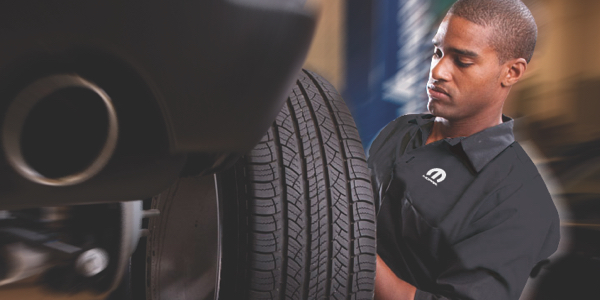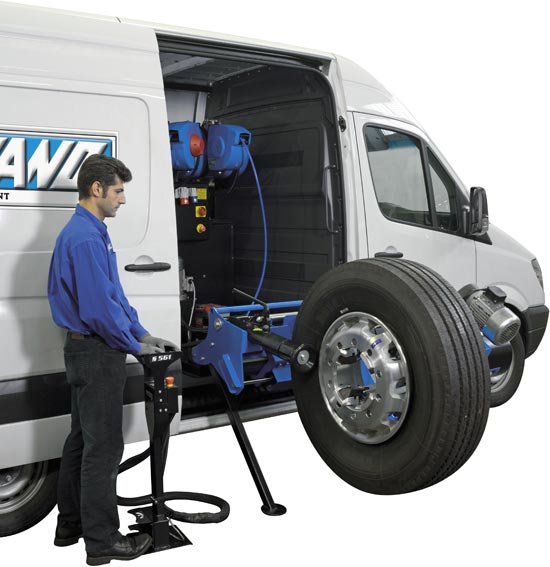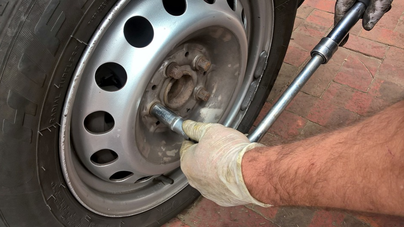Unlock Efficiency: Expert GMC Tire Service at Morris Tires
Unlock Efficiency: Expert GMC Tire Service at Morris Tires
Blog Article
Tire Solution: The Impact of Weather
When it pertains to ensuring optimum performance and safety and security on the road, comprehending the influence of weather conditions on tire solution is critical. From scorching warm to icy roadways, each weather condition element can substantially affect tire performance and total driving experience. By diving right into the impacts of varying weather problems on tires, vehicle drivers can gain useful insights that may enhance their vehicle's performance and longevity. In this discussion, we will explore the intricate partnership between climate conditions and tire solution, clarifying the significance of weather-specific tire maintenance practices and considerations.
Heat and Tire Performance
When subjected to high temperature levels, tires experience changes in efficiency that can significantly influence vehicle safety and security and handling. The warm produced from long term driving or heat problems causes the tire rubber to soften, causing reduced tread life and boosted wear. As the rubber becomes softer, the tire's grip when driving reduces, impacting braking distances and overall grip. In extreme situations, too much warmth can also create tire blowouts, posturing an extreme safety and security threat to the automobile and its passengers.

Winter Results
Winter conditions can have a substantial effect on tire efficiency and safety and security. As temperature levels decline, tire rubber can solidify, leading to reduced grip on icy or snow-covered roads. In winter, tires may additionally shed atmospheric pressure a lot more swiftly, which can impact managing and gas efficiency. In addition, chilly temperature levels can create tire sidewalls to tense, raising the risk of damages from craters or various other road threats.
To reduce the effects of winter on tires, it is critical to routinely inspect tire pressure and inflate them to the maker's recommended degrees. Making use of wintertime or all-season tires made for cold climate problems can also enhance traction and grasp on icy or snowy roadways. Appropriate tire upkeep, including routine evaluations for wear and damages, comes to be also a lot more crucial during chillier months to guarantee optimal efficiency and safety.
Rainy Conditions Effect
Tires with damaged footsteps are extra susceptible to hydroplaning, where a layer of water develops up between the tire and the roadway surface, leading to loss of traction. To battle this, vehicle drivers should frequently check their tires for learn the facts here now adequate walk deepness and think about spending in tires especially designed for damp conditions.
In addition, stormy climate can additionally decrease visibility, making it testing for chauffeurs to see the roadway in advance plainly (GMC Tire Service). In such problems, it is necessary to adjust driving rates accordingly and preserve a risk-free following range to permit unexpected stops. Appropriately filled with air tires can additionally aid in keeping control on damp roads by giving better handling and grip
Snow and Tire Safety And Security
Snow-covered roads present unique difficulties for chauffeurs, highlighting the significance of appropriate tire option and upkeep. When driving in snowy problems, having the appropriate tires can make a considerable distinction in safety and performance. Winter season tires are created with unique rubber compounds and tread patterns to supply better traction on snow and ice compared to all-season tires. The much deeper footsteps and sipes of winter months tires assist grip the road better, decreasing the threat of moving and sliding.

It is important to adhere to supplier guidelines when using and installing tire chains to avoid damage to the tires and lorry. By selecting the appropriate tires, maintaining appropriate rising cost of living, and considering added traction help like tire chains, drivers can improve their security when browsing snow-covered roadways.
Weather-Related Tire Maintenance
When confronted with different weather problems, appropriate tire upkeep comes to be a vital aspect of automobile safety and efficiency. Weather-related tire upkeep includes a variety of methods intended at ensuring optimal tire function and longevity in different climate situations. One crucial aspect of weather-related tire upkeep is tire pressure regulation. Varying temperature levels can create tire stress to vary, influencing traction and fuel effectiveness. Frequently inspecting and adjusting tire you can try these out pressure according to supplier referrals is crucial for safe driving in altering climate condition. Additionally, tire tread depth plays a substantial role in taking care of different weather condition elements. Tires with adequate step depth provide much better grasp on wet or icy roads, decreasing the threat of skidding or hydroplaning. When step wear gets to a certain deepness is crucial for maintaining grip and stability find more in damaging climate, evaluating tire tread frequently and changing tires. By focusing on weather-related tire upkeep, vehicle drivers can boost safety, improve automobile efficiency, and lengthen the lifespan of their tires.
Conclusion
In conclusion, weather have a significant influence on tire performance and safety. From warm influencing tire stress and use to cool weather decreasing grip, it is essential to think about the weather condition when maintaining and utilizing tires. Stormy conditions can reduce hold and lead to hydroplaning, while snow can enhance the threat of mishaps if tires are not effectively equipped. Weather-related tire upkeep is essential in guaranteeing ideal efficiency and security on the roads.
In this discussion, we will certainly discover the elaborate partnership between climate problems and tire solution, dropping light on the importance of weather-specific tire upkeep practices and considerations.

Report this page